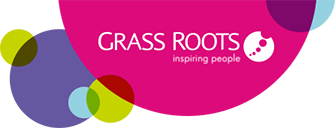Grass Roots OneFee






PUMP UP YOUR PROMOTIONS
Budget boosting promotions at a fixed cost
GRASS ROOTS ONE FEE
Promotional Risk Management
If you're planning a promotion that is not on–pack, you may be able to take advantage of our pay as you sell pricing.
An on–pack promotion will have a universe of sales that is known; therefore it's a simple process to calculate the promotional risk as all the packs will sell through. The quicker the sell through, the more the promotion is a success.
In many cases with an off–pack promotion, the client will not know the number of units that will be sold during a promotional period. Products such as insurance, cars and mobile phones are all examples of an off–pack promotion. Here we can offer a fixed fee on a per opportunity to claim basis or in other words, per unit sold within the promotional period. This aligns us with the objectives of the client as the fees we receive are directly based on the success of the promotion.
Want to reward customers with a free fuel offer? Our off the shelf fuel cards can be pre–loaded with any amount. They are personalised pre–paid Mastercard® debit cards that can be used at any fuel station that accepts Mastercard®. We have a very simple costing model with no hidden extras. For large scale promotions, we can produce a fully bespoke client branded card.
A great way to amplify the promotional budget is to run an instant win promotion. Instant wins are based on expected play rates which are driven by certain factors such as the strength of the reward on offer and what the participant has to do in order to take part. Typically you can multiply the budget by a factor of 5 to 10; therefore a £10K budget could deliver you a prize fund to be won of £50K to £100K. Don't worry if you can't print unique codes on your packs; our ENPL® system allocates codes to participants in the background forcing proof of purchase if they win.
Setting up a promotion but don't have a clue how many redemptions you'll get? You could sit back a wait to see how many customers will take part. However, your finance people will probably need to carry contingent liability on the balance sheet in case of over redemption and you may have to set aside budget that will be needed to pay for reward fulfilment. A fixed fee takes away the uncertainties whatever the outcome. It can also be taken in one financial year, even if the promotion crosses the year end. Effectively you're transferring the liability to us taking away the risk of having to find more money to pay for rewards.
Coupons continue to be popular especially within the FMCG grocery sector. According to Valassis the leading coupon clearing house, 84% of supermarket shoppers use coupons with around 2 million being redeemed per day. Delivery can be through printed media, targeted door drop, direct mail and with print at home coupons can be communicated via the web and social media. We can employ a risk managed solution for both online and offline coupon promotions which makes budget planning a breeze.
There are many guises for promotions that involve giving customers the opportunity to receive back some or all of the purchase price of the product. Cash back amounts range from around a pound for FMCG products to many hundreds of pounds for white and brown goods. At the lower end of the scale, brands may use a cash back mechanic to encourage product trial and to receive consumer information about what they think about the product. At the upper end of the scale, brands can use cash back in place of price reduction which goes down well with retailers whose margins are protected.
Types of cash back for FMCG brands
Try me free
The easiest (for the consumer) form of cash back where the consumer simply sends in proof of purchase by mail or electronically to receive back the purchase price of the product.
Taste challenge
The consumer sends in proof of purchase along with a minimum of 15 words as to why they liked or disliked the product. The brand can expect around 70% fewer applications than a try me free campaign but it will give insight into what consumers think about the product.
Satisfaction guarantee
Here the brand is only making a cash refund to consumers that don't like the product and they will be asked to provide a statement of a minimum of 15 words as to why they didn't like it. Typically the redemption level will be less than 1% of the pack universe (unless of course there is something significantly wrong with the product). Insight will be gained by the brand as to why consumers are dissatisfied. In our experience consumers don't generally lie about a product just to get their money back so the data will be useful.
If a promoter is looking for a huge headline prize fund that could be won, a solution could be a scratch card promotion. This could be a physical printed scratch card or an online version of the same. The risk profile / cost model for the potential prize fund is the same either way with the promoter having to consider the cost implications of developing an online game versus the production costs of a physical card. A common format for scratch cards is for the participant to scratch 3 panels from a possible 9 where there are 3 winning symbols hidden under latex panels. For those that correctly match all 3, the corresponding prize will be won. Participants must only scratch 3 panels, any more will render the card void and the prize forfeited. It is possible to have a potential prize find of over £1 million for a budget of £20K.
If you're planning a promotion that is not on–pack, you may be able to take advantage of our pay as you sell pricing.
An on–pack promotion will have a universe of sales that is known; therefore it's a simple process to calculate the promotional risk as all the packs will sell through. The quicker the sell through, the more the promotion is a success.
In many cases with an off–pack promotion, the client will not know the number of units that will be sold during a promotional period. Products such as insurance, cars and mobile phones are all examples of an off–pack promotion. Here we can offer a fixed fee on a per opportunity to claim basis or in other words, per unit sold within the promotional period. This aligns us with the objectives of the client as the fees we receive are directly based on the success of the promotion.
Want to reward customers with a free fuel offer? Our off the shelf fuel cards can be pre–loaded with any amount. They are personalised pre–paid Mastercard® debit cards that can be used at any fuel station that accepts Mastercard®. We have a very simple costing model with no hidden extras. For large scale promotions, we can produce a fully bespoke client branded card.
A great way to amplify the promotional budget is to run an instant win promotion. Instant wins are based on expected play rates which are driven by certain factors such as the strength of the reward on offer and what the participant has to do in order to take part. Typically you can multiply the budget by a factor of 5 to 10; therefore a £10K budget could deliver you a prize fund to be won of £50K to £100K. Don't worry if you can't print unique codes on your packs; our ENPL® system allocates codes to participants in the background forcing proof of purchase if they win.
Setting up a promotion but don't have a clue how many redemptions you'll get? You could sit back a wait to see how many customers will take part. However, your finance people will probably need to carry contingent liability on the balance sheet in case of over redemption and you may have to set aside budget that will be needed to pay for reward fulfilment. A fixed fee takes away the uncertainties whatever the outcome. It can also be taken in one financial year, even if the promotion crosses the year end. Effectively you're transferring the liability to us taking away the risk of having to find more money to pay for rewards.
Coupons continue to be popular especially within the FMCG grocery sector. According to Valassis the leading coupon clearing house, 84% of supermarket shoppers use coupons with around 2 million being redeemed per day. Delivery can be through printed media, targeted door drop, direct mail and with print at home coupons can be communicated via the web and social media. We can employ a risk managed solution for both online and offline coupon promotions which makes budget planning a breeze.
There are many guises for promotions that involve giving customers the opportunity to receive back some or all of the purchase price of the product. Cash back amounts range from around a pound for FMCG products to many hundreds of pounds for white and brown goods. At the lower end of the scale, brands may use a cash back mechanic to encourage product trial and to receive consumer information about what they think about the product. At the upper end of the scale, brands can use cash back in place of price reduction which goes down well with retailers whose margins are protected.
Types of cash back for FMCG brands
Try me free
The easiest (for the consumer) form of cash back where the consumer simply sends in proof of purchase by mail or electronically to receive back the purchase price of the product.
Taste challenge
The consumer sends in proof of purchase along with a minimum of 15 words as to why they liked or disliked the product. The brand can expect around 70% fewer applications than a try me free campaign but it will give insight into what consumers think about the product.
Satisfaction guarantee
Here the brand is only making a cash refund to consumers that don't like the product and they will be asked to provide a statement of a minimum of 15 words as to why they didn't like it. Typically the redemption level will be less than 1% of the pack universe (unless of course there is something significantly wrong with the product). Insight will be gained by the brand as to why consumers are dissatisfied. In our experience consumers don't generally lie about a product just to get their money back so the data will be useful.
If a promoter is looking for a huge headline prize fund that could be won, a solution could be a scratch card promotion. This could be a physical printed scratch card or an online version of the same. The risk profile / cost model for the potential prize fund is the same either way with the promoter having to consider the cost implications of developing an online game versus the production costs of a physical card. A common format for scratch cards is for the participant to scratch 3 panels from a possible 9 where there are 3 winning symbols hidden under latex panels. For those that correctly match all 3, the corresponding prize will be won. Participants must only scratch 3 panels, any more will render the card void and the prize forfeited. It is possible to have a potential prize find of over £1 million for a budget of £20K.
